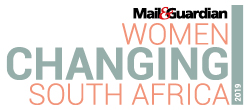Women in Leadership
Exploring identity, power and perceptions in the workplace
Women score higher than men in most leadership skills. This is according to recent research conducted by Harvard Business Review (HBR), which, after analysis of 360-degree reviews found that women in leadership positions were perceived as being every bit as effective as men. In fact, in the study (conducted in 2012 and recently updated) women scored at a higher level than men on the majority of leadership competencies measured. Despite this, the number of women in senior executive positions remains consistently low. HBR notes that only 4.9% of Fortune 500 CEOs are women.
Closer to home, it’s a similar story: as women move up the ranks, they systematically push against challenges that hold them down. Research by Bain has found that South African women aspire to top management positions even more than men when they enter the workforce. But despite starting their careers motivated, ambitious and confident, they are still not reaching those executive positions. The Businesswoman’s Association of South Africa (BWASA) 2017 census revealed that only 22% of board directors and 7% of executive directors are women.
This phenomenon is baffling, and it is complex. To try and understand and address this issue, Wits Business School (WBS) developed its Women in Leadership course, an executive education short course that aims to equip women with a practical ‘toolkit’ to help negotiate stumbling blocks to career advancement.
“At Wits Business School we are passionate about women’s issues. Ensuring diversity in the workplace is not only the right thing to do, but it makes good business sense. Whether you are a senior executive or business owner, male or female, developing those so-called ‘soft skills’ – such as negotiation, networking and EQ – can make all the difference to your career, and even to the success of your organisation,” says Dr Zanele Ndaba, Programme Director of the Women in Leadership course.
Another report, the 2018 Global Leadership Forecast, found that gender-diverse organisations have higher quality leadership, are more agile, grow faster, and are more likely to experiment and embrace failure in pursuit of different and innovative approaches. Companies with at least 30% of women in leadership roles were 1.4 times more likely to enjoy sustained, profitable growth, the report found.
“Gender equality still remains a major issue in the corporate world, and one of the ways we try to address this on our course is to help women be heard in the workplace. We focus on the so-called soft skills, such as interpersonal communication and negotiation skills,” says Ndaba.
The programme explores the South African workplace paradigm, looking at patriarchy, power and diversity under the spotlight. It challenges delegates to examine their self-awareness and emotional intelligence (EQ), which is becoming increasingly necessary in a rapidly changing business environment.
Delegates are given the opportunity to explore their own identity in relation to their socio-cultural and organisational identity within the South African workplace paradigm. This gives rise to exercises in dialogue and negotiation, team effectiveness and collaboration – teamwork being a central tenet of the programme.
“The Women in Leadership programme aims to capacitate women leaders with a skills set that positions them for excellence in the execution of their role. It sets delegates up as game-changers instead of passive respondents to change. Women in middle management and executive leadership stand to benefit the most from this experiential and interactive programme,” says Phyllis Ndlovu, a clinical psychologist and programme facilitator.
“We place emphasis on self-actualisation, and the celebration and respect of self,” adds Alison Foote, Manager of the Leadership and Coaching Development Centre at WBS. “I have seen instances of real personal growth, even transformation, among delegates, many of whom find their voice and tap into inner resources they didn’t know they had,” she says.
The course also includes a module on employee relations, facilitated by Dr Jenika Gobind, which includes maternity in the workplace, workplace bullying, workplace gossip and sexual harassment.
“Despite still facing hurdles, South African women continue to fight against cultural and patriarchal dominance,” says Dr Gobind, a Senior Lecturer in HR at WBS, who has written extensively on both HIV/ Aids in the workplace and women in the workplace.
“Employee relations needs to be afforded the priority and recognition it deserves within organisations. The employment relations context has changed massively in post-apartheid South Africa as employees grow increasingly confident about their labour rights. Women need to find their voice in the workplace – this means constructively challenging the status quo and paving the way for innovative and positive change.”

Dr Zanele Ndaba Programme Director: Women in Leadership,
Dr Jenika Gobind Senior Lecturer: Human Resources

